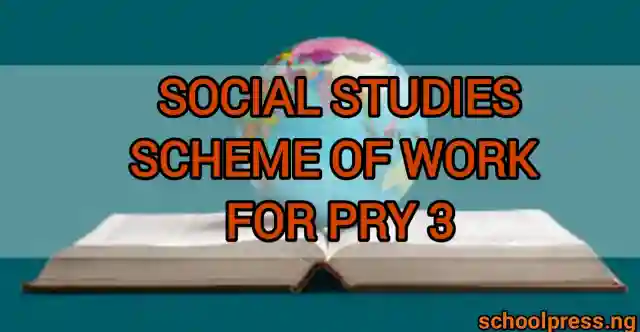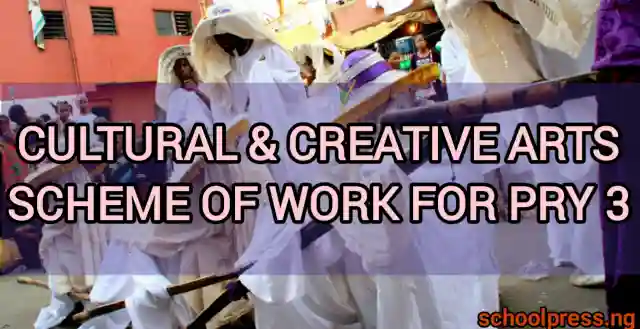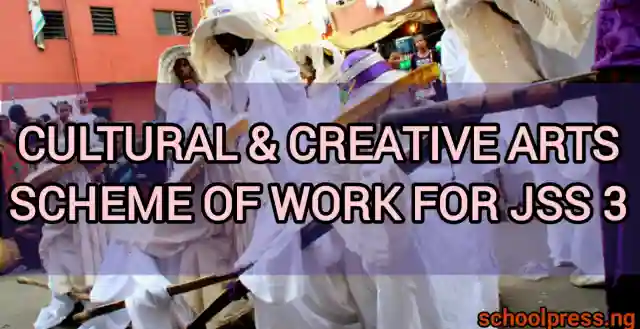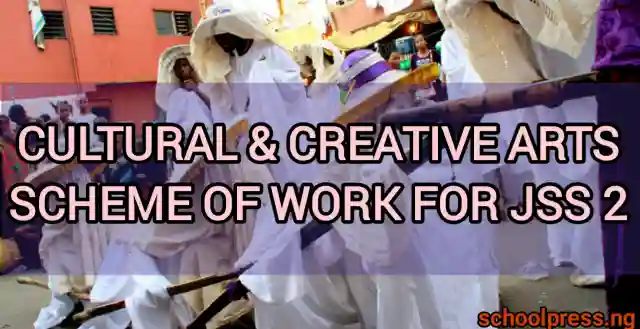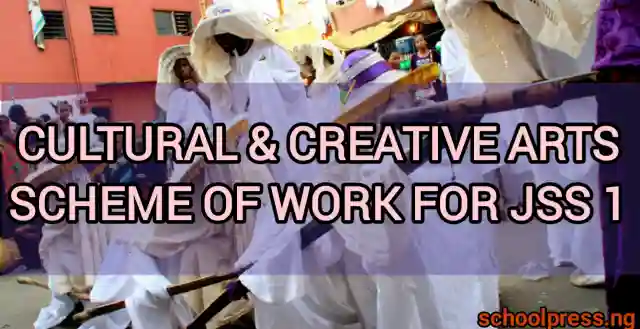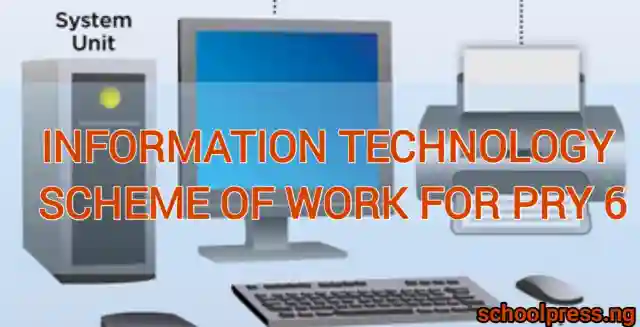Social Studies is a vital subject in the development of social and emotional skills among primary school students. The subject aims at inculcating the values of the society within which the children live, the people around them, and the nature of relationships that should be encouraged. This article is all about the Social Studies Scheme of Work for Primary 3, particularly the sub-themes of Family as the Basic Unit of Society, Culture and Values, and Social and Health Problems.
At the end of the session, pupils should be able to recognize the nuclear family members, which is a family consisting of the father, mother/mother, and children. They should also know who an extended family is, a family that includes close blood relations. To be able to do this, a teacher can tell the pupils to find out and come to school who members of their nuclear family are. Pictures of a nuclear family with a father, mother and children would also be appropriate for the subject.
Pupils are also expected to demonstrate how to show respect to members of the nuclear and extended family. This includes respecting parents, siblings, uncles, aunties, grandparents, and in-laws. Teachers can use a questioning method to identify various ways that family members respect each other, and pupils should role-play respect among family members and extended family members in the class.
The teacher should define the roles played by each family member to maintain a child and also explain to the students the functions, or roles, of distant family members, which are to assist the immediate parent in maintaining a child, give the child a social identity, and keep family history. For learning, it is possible to provide pictures of extended people and elderly people in the community.
Pupils should know the type of marriage in the community, Pupils should also be introduced to polygamy and monogamy among the people, and the teacher may use role-playing methods to show polygamous and monogamous families, respectively.
Pupils should also be introduced to the ways of marriage and the objects used for the marriage. Pupils should be assigned tasks to learn about how their parents got married and the objects used. The teacher may also use pictures such as churches, mosques, and shrines for learning.
Pupils will be expected to learn the common drugs in their community and the right people to give them. For this, teachers may label drug names on the drug to help identify them. A plastic pocket poster with different names of drugs and who must give these drugs might also be recommended.
They will also be expected to know the ways of identifying a person who has abused drugs and the symptoms of common illnesses in their community. The teacher can use visual aids such as charts and posters to illustrate these. A resource person such as the school nurse or Red Cross personnel could be invited in for a talk on 1 st aid treatment.
The Social Studies Scheme of Work for Primary 3 pupils is based on the need to enhance social and emotional skills for primary school children. Pupils learn about the society they live in, the people in the society, and how they interact with other people. The sub-themes Family as the Basic Unit of Society, Culture and Social Values, and Social and Health Issues play an instrumental role in ensuring pupils have an idea of their local environment and the broader environment.
Table of Contents
First Term Social Studies Scheme of Work for Primary 3
| WEEK | TOPIC | CONTENT |
| 1 & 2 | The Nuclear and Extended Families | (1) members of a nuclear family i.e father, Mother and, Children (2) Extended family i.e. close blood relations |
| 3 & 4 | 2) Respect among family members e.g. -Father/mother, Parents/children, Sibling/sibling, Children/uncles, Parents/in-laws etc. | |
| 5 & 6 | 2) Respect among family members e.g. Father/mother, Parents/children, Sibling/sibling, Children/uncles, Parents/in-laws etc. | |
| 7. | Mid Term Test | |
| 8. | Types of Marriage in our community | (1) Meaning of marriage -Lawful and acceptable union of a man and woman to make up a family |
| 9. | (2)Types of marriages; Polygamy, Monogamy etc. | |
| 10. | Various ways of getting married and the objects used in the ceremony | (1) Marriage practices in Nigeria e.g. -Agreement by the two families by paying the bride price -Religious marriage either in the church or mosque -Traditional marriage or court wedding. Objects used in marriage ceremonies: Wine, Kolanut food items, wedding gown, money services etc. |
| 11. | Revision | |
| 12 & 13 | Examination |
Check All Primary Schemes of Work Below
Second Term Social Studies Scheme of Work for Primary 3
| WEEK | TOPIC | CONTENT |
| 1 & 2 | Common Drugs in our Community and the right people to give them | Meaning of drug medical substances for curing illness. |
| 3 & 4 | Modern common medicines/drugs e.g. Aspirin, Daga, Nivaquine, Panadol, Paracetamol, phensic, Alabukun, Traditional e.g. lemon grass. | |
| 5 & 6 | (2) Ways of knowing someone who has abused drugs -Untidy appearance -Drunken behaviour -Frequent fighting -Disobedience -Convulsion | |
| 7. | Mid Term Test | |
| 8. | Ways of identifying someone who has abused drugs | (1) Drug abuse – intake of medicine without prescription |
| 9. | (2) Ways of knowing someone who has abused drugs -Untidy appearance -Drunken behavior -Frequent fighting -Disobedience -Convulsion | |
| 10. | (3) Ways of helping someone who has abused drugs/medium: -reporting any change of behavior to parent, teacher and other adults, -Seeking medical attention etc. | |
| 11. | Who administers the drugs: parents, guardians, teachers, nurses, doctors, etc. | Common illnesses in the community: -Malaria -Dysentery -Diarrhea -Cholera etc. |
| 12 & 13 | Revision and Examination |
Check All Jss Scheme Of Work Bellow
Third Term Social Studies Scheme of Work for Primary 3
| WEEK | TOPIC | CONTENT |
| 1 & 2 | (2) Causes of common illnesses like dysentery or diarrhoea: -Dirty and polluted surroundings -Infections | (1) Symptoms of common illnesses in the community -General weakness -Lack of appetite -Headache/ cold etc. |
| 3 & 4 | (2) Causes of common illnesses like dysentery or diarrhea: -Dirty and polluted surroundings -Infections | |
| 5 & 6 | (3) Prevention of common illness: Clearing of one environment, Eating a balanced diet, Regular medical checkups etc. | |
| 7. | Mid Term Test | |
| 8. | Causes of Road Accident | (1) Meaning of road accidents: Sudden bad happening on the road which can cause damage or loss of property, physical injury or loss of life. |
| 9. | (2) Causes of road accidents include: Bad roads, Poorly built roads by corrupt and inappropriate workers -Poor use of resources, Bad vehicles, Careless and unsafe driving -Inability to read and interpret road signs etc. | |
| 10. | Giving First Aid Treatment to Road Accident Victims. | (1) Objects found in the first aid box: Scissors, bandages, Pain relieve tablets, razor blades, Cotton wool, Iodine, Izal etc. |
| 11. | (2) Simple first aid treatment -Clean the round with antiseptic -Cover with plaster or bandage -Administer pills as recommended by doctors, etc. | |
| 12 & 13 | Ways of Preventing Common Illnesses |
Check All SSS Scheme Of Work Bellow
Conclusion
The Social Studies Scheme of Work for Primary 3 is inclusive and has organized sections in the entire subject. It has several sub-themes that are comprehensive and elaborate. The overall objective aims at ensuring pupils attain the necessary knowledge and skills that would enable them to understand the aspects of their immediate environment and society at large.
The Social Studies Scheme of Work for Primary 3 is a detailed and well-outlined course of learning worth considering. The scheme covers all necessary areas of knowledge and skills that children must acquire to comprehend their immediate environment and society, and it is organized in a well-structured and interactive way.
Different activities and available resources make the assimilation of information more effective and efficient. In my opinion, the scheme makes an essential contribution to the learning processes of both teachers and pupils.

